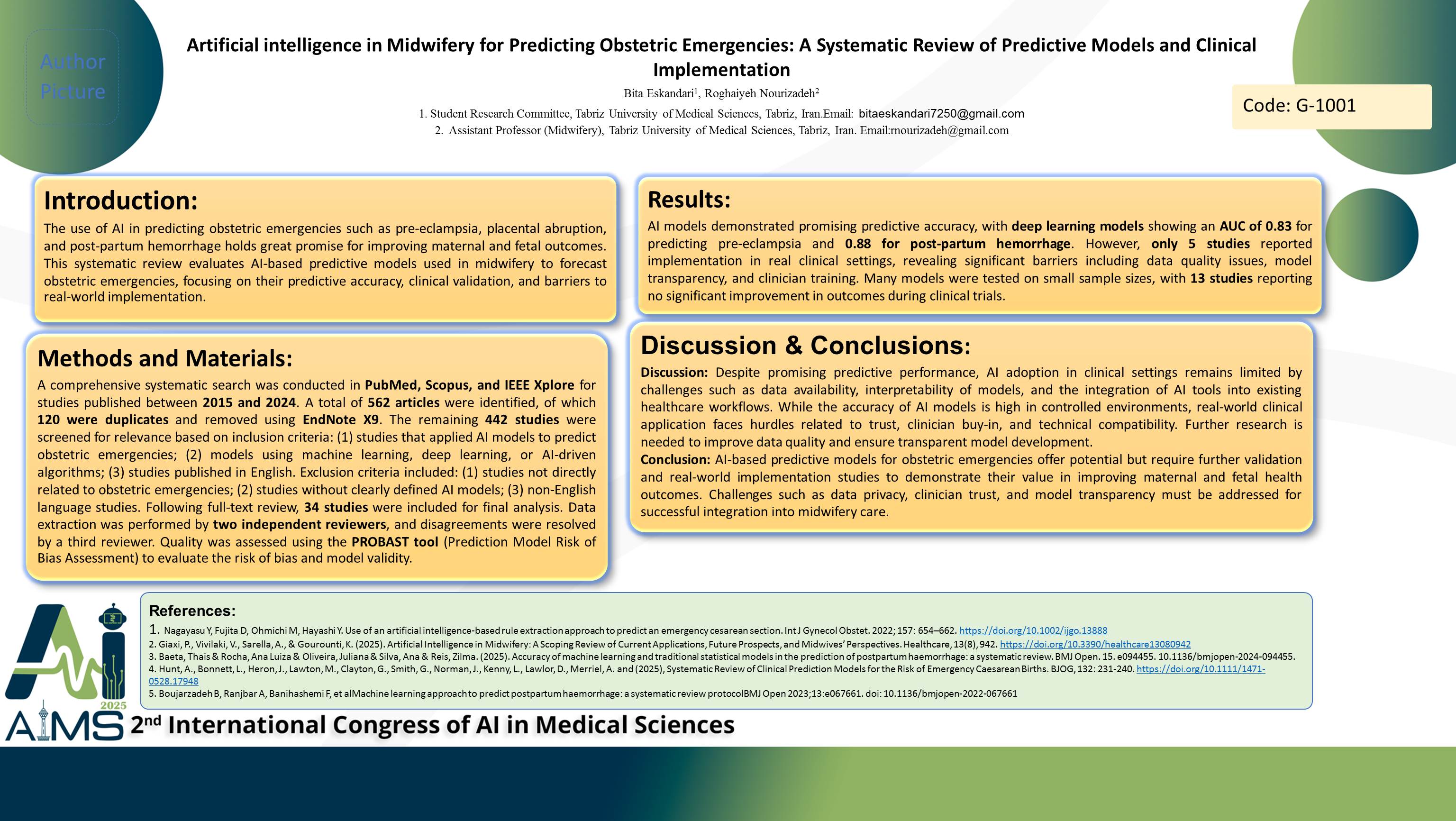Artificial intelligence in Midwifery for Predicting Obstetric Emergencies: A Systematic Review of Predictive Models and Clinical Implementation
Code: G-1871
Authors: Bita Eskandari * ℗, Roghaiyeh Nourizadeh
Schedule: Not Scheduled!
Tag: Clinical Decision Support System
Download: Download Poster
Abstract:
Abstract
Background: The use of AI in predicting obstetric emergencies such as pre-eclampsia, placental abruption, and post-partum hemorrhage holds great promise for improving maternal and fetal outcomes. This systematic review evaluates AI-based predictive models used in midwifery to forecast obstetric emergencies, focusing on their predictive accuracy, clinical validation, and barriers to real-world implementation. Method: A comprehensive systematic search was conducted in PubMed, Scopus, and IEEE Xplore for studies published between 2015 and 2024. A total of 562 articles were identified, of which 120 were duplicates and removed using EndNote X9. The remaining 442 studies were screened for relevance based on inclusion criteria: (1) studies that applied AI models to predict obstetric emergencies; (2) models using machine learning, deep learning, or AI-driven algorithms; (3) studies published in English. Exclusion criteria included: (1) studies not directly related to obstetric emergencies; (2) studies without clearly defined AI models; (3) non-English language studies. Following full-text review, 34 studies were included for final analysis. Data extraction was performed by two independent reviewers, and disagreements were resolved by a third reviewer. Quality was assessed using the PROBAST tool (Prediction Model Risk of Bias Assessment) to evaluate the risk of bias and model validity. Results: AI models demonstrated promising predictive accuracy, with deep learning models showing an AUC of 0.83 for predicting pre-eclampsia and 0.88 for post-partum hemorrhage. However, only 5 studies reported implementation in real clinical settings, revealing significant barriers including data quality issues, model transparency, and clinician training. Many models were tested on small sample sizes, with 13 studies reporting no significant improvement in outcomes during clinical trials. Conclusion: AI-based predictive models for obstetric emergencies offer potential but require further validation and real-world implementation studies to demonstrate their value in improving maternal and fetal health outcomes. Challenges such as data privacy, clinician trust, and model transparency must be addressed for successful integration into midwifery care.
Keywords
Artificial intelligence, Obstetric Emergencies, Predictive Models
